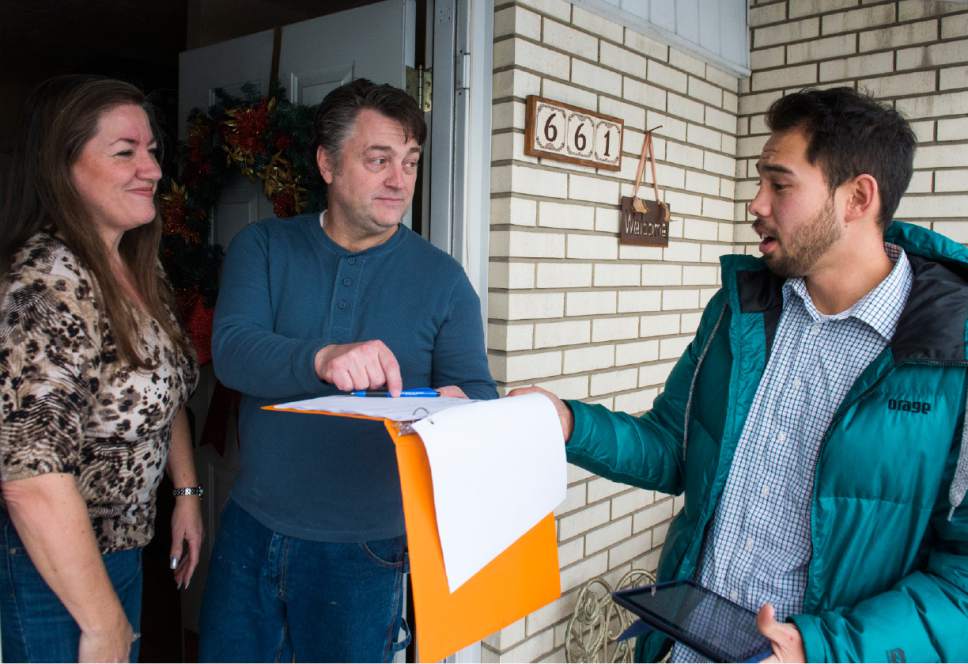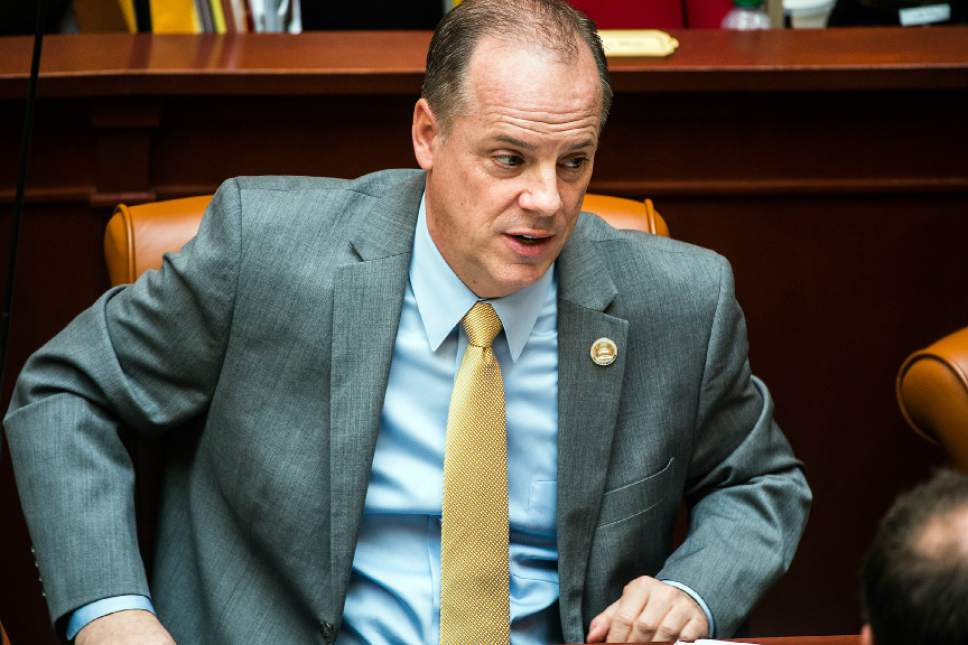This is an archived article that was published on sltrib.com in 2017, and information in the article may be outdated. It is provided only for personal research purposes and may not be reprinted.
The House has abandoned an effort to ban Utah candidates from hiring paid signature gatherers to get on the primary election ballot.
HB22 was amended to delete the ban, and then the House approved it on a 59-3 vote. It now goes to the Senate.
Critics had said that such a ban would essentially cut off the new alternative path to the ballot outside the traditional caucus-convention system because of the high numbers of signatures required.
The bill ran into trouble a couple of weeks ago when legislative lawyers pointed out that the U.S. Supreme Court has ruled that paid signature gathering is a protected form of free speech — so the bill was unconstitutional.
Its sponsor, Rep. Brian Greene, R-Pleasant Grove, pulled the bill at the time from House consideration to explore whether banning just some forms of paid signature gathering might be allowed.
Greene said Friday that he had intended to simply let the bill die, but Lt. Gov. Spencer Cox's office ask that he amend the bill and pass it because it contains other reforms.
The bill includes fines for up to $100 per signature for those gathered illegally. It also would require signature gatherers to wear hats, shirts or badges showing clearly for whom they are gathering signatures.
The controversy over paid signature gathering has roots in SB54, which the Legislature passed in 2014 as a compromise to halt the Count My Vote initiative that sought to replace the traditional caucus-convention system with a direct primary.
SB54 was a hybrid that allowed candidates to qualify for the ballot either through the caucus-convention system, by collecting enough signatures, or both.
The Utah Republican Party fought the change unsuccessfully in court. It recently said it would stop appeals, and seek any needed tweaks through legislation.





